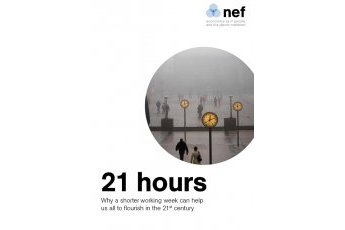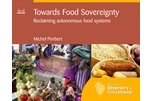As much as those who identify themselves as social progressives would like to believe otherwise, writes Dale McKinley, ‘the reality is that South Africa is a bastion of social conservatism’. One of the most glaring contradictions of South Africa’s post-apartheid ‘transition’, says McKinley, ‘is (…)
Tous les articles et traductions
Trade Unions in Iran: the Other Movement
When most people think about the recent upheavals in Iran, they think of marches demanding democracy and challenging the June 12 presidential election. The face of those protests is the “Green Movement” — so called because its supporters wear green —that put millions of people into the streets (…)

Upsetting the offset. The Political Economy of Carbon Markets
Steffen Böhm & Siddhartha Dabhi (eds), Mayfly Books, 2009
Upsetting the Offset engages critically with the political economy of carbon markets. It presents a range of case studies and critiques from around the world, showing how the scam of carbon markets affects the lives of communities. But the book doesn’t stop there. It also presents a number of (…)
Decisive Moment for Extractive Industries Global Transparency Effort
As most countries miss deadline to demonstrate openness on petroleum, mining revenues, an international initiative that seeks to promote more openness about how countries profit from their oil, gas, and mining resources should not weaken its modest membership standards because governments are (…)
Africa’s Success Stories in Gender Empowerment
Whenever gender empowerment is a vibrant topic of discussion internationally, some of the countries in Europe, Asia and Latin America are invariably singled out for their success stories in politics, education, health care or civil liberties even as Africa is mostly left out of political (…)
U.N. Report Presents a Richer View of Poverty
What does it mean to be poor in 2010? In monetary terms, the number of people living below the official extreme-poverty threshold of $1.25 per day in developing nations has declined. In fact, according to the World Bank’s benchmarks, the extreme poverty rate worldwide has tumbled from about 50 (…)
Beijing+15
IPS - TerraViva reports on Beijing+15 Conference with articles on the situation of women and women’s rights worldwide as well as reports on women’s issues progress in international institutions. Read more
Young Western Muslims Fight Misperceptions
Islamophobia is rising in the West, and sectarian clashes have undermined unity in the Muslim world, but there is hope from "within", says a group of young Muslim Leaders of Tomorrow (MLTs) working to address these problems. Read more

21 hours. Why a shorter working week can help us all to flourish in the 21st century
Anna Coote, Andrew Simms, Jane Franklin
A ‘normal’ working week of 21 hours could help to address a range of urgent, interlinked problems: overwork, unemployment, over-consumption, high carbon emissions, low well-being, entrenched inequalities, and the lack of time to live sustainably, to care for each other, and simply to enjoy life. (…)
Reforming Pakistan’s Civil Service
If Pakistan’s deteriorating civil service is not urgently repaired, public disillusionment and resentment could be used by the military to justify another spell of authoritarian rule.
Reforming Pakistan’s Civil Service, the latest report from the International Crisis Group, analyses the (…)
Honduras: A Lobo in Sheep’s Clothing?
New Honduran president’s legitimacy questioned as ‘one-sided civil war’ deepens human rights crisis, national bankruptcy declared. Read more
Bargaining in a labour regime
Up-country Tamil plantation workers in Sri Lanka remain a subjugated community, treated as little more than bonded labour. The current political foment includes opportunities for change. Read more
Good on paper
With the government incapable of designing Nepal’s school education, bilateral and multilateral donors are forced to step in. As a result, Nepali education has for decades lurched from one internationally assisted mega-project to another. Read more
Identities in Transition: Developing Better Transitional Justice Initiatives in Divided Societies
In post-conflict societies, histories of exclusion, racism and nationalist violence often create divisions so deep that finding a way to agree on the atrocities of the past seems near-impossible. This project seeks, first, to ensure that transitional justice measures are sensitive to the ways in (…)
Chhattisgarh: Lost battle
The people of Chhattisgarh (India) appear to have lost the battle against industrialisation without rules. Even those who held out longest against the acquisition of their lands, forests and rivers are giving up the fight. Dilnaz Boga travels through the villages of Raigarh district, where (…)

Towards food sovereignty: Reclaiming autonomous food systems
‘Towards Food Sovereignty’ is an online book with full color photo illustrations and linked video and audio files. It describes the ecological basis of food and agriculture, the social and environmental costs of modern food systems, and the policy reversals needed to democratize food systems. (…)
Is the Obama Administration Covering Up Three Murders at Guantanamo?
An explosive new article reveals that three Gitmo prisoners whose deaths were labeled suicides were murdered. Obama’s Department of Justice has refused to investigate. Read more
South Africa: From rights to commons
While the achievement of universal ontological rights in South Africa has been a marvellous step forward, writes Jason Hickel, the paradigm of a rights-based revolution is seriously and fundamentally flawed, and cannot serve the ends that South Africa intends it to. Cautioning that the state can (…)
Health: The Challenge of Improving Nutrition
SciDev.net publishes a spotlight on the challenge of improving nutrition in the developing world.
More than a billion people in developing countries suffer from malnutrition, increasing the risk of disease and death, and reducing long-term economic productivity and development. But (…)
State of the World’s Indigenous Peoples: New UN Report
Millions of people around the world who belong to indigenous communities continue to face discrimination and abuse at the hands of authorities and private business concerns, says a new U.N. report.
It is happening not only in the developing parts of the world but also in countries such as the (…)
